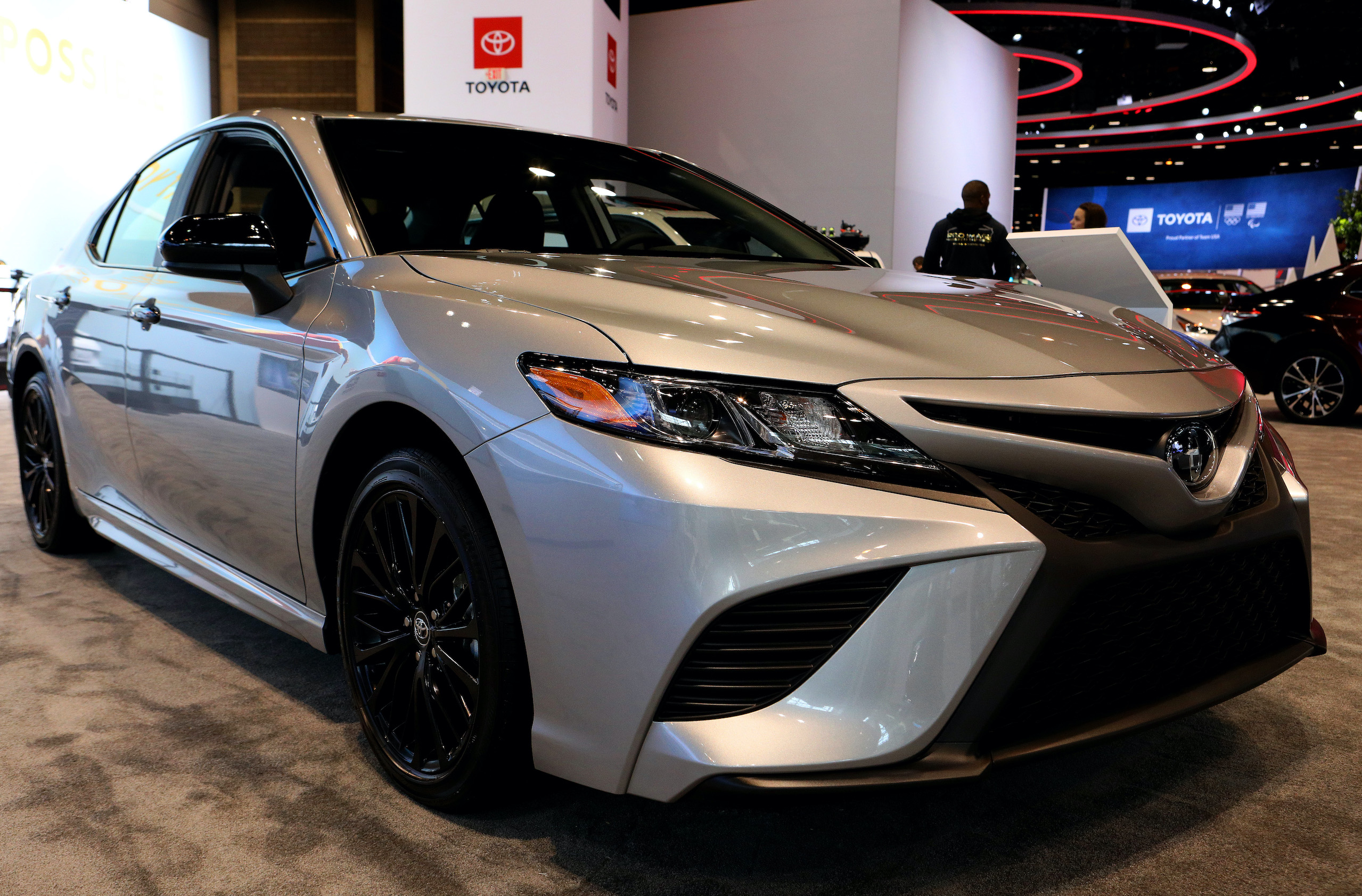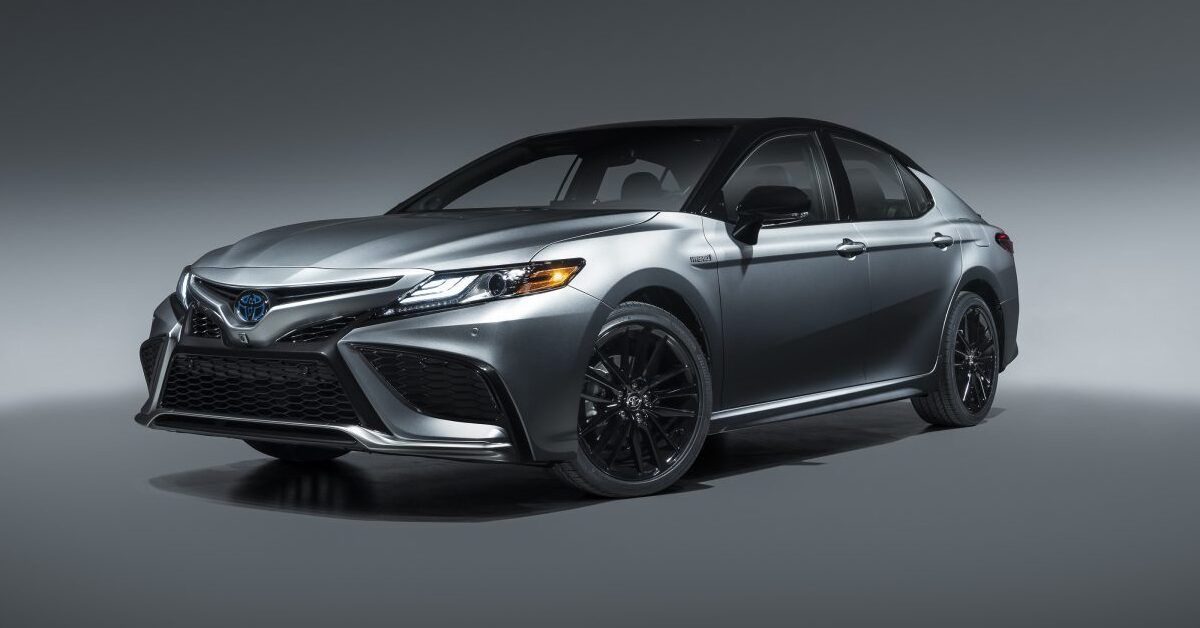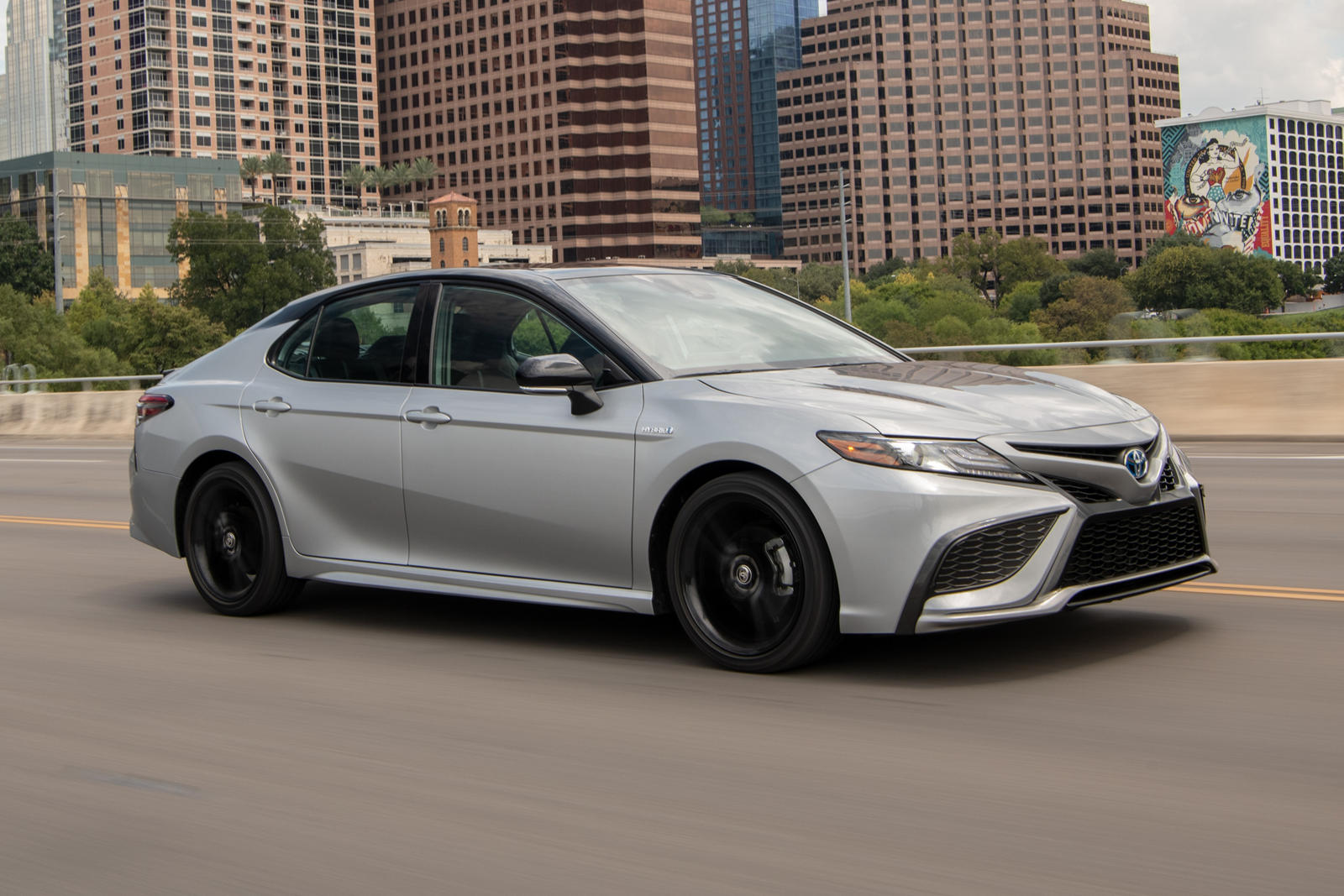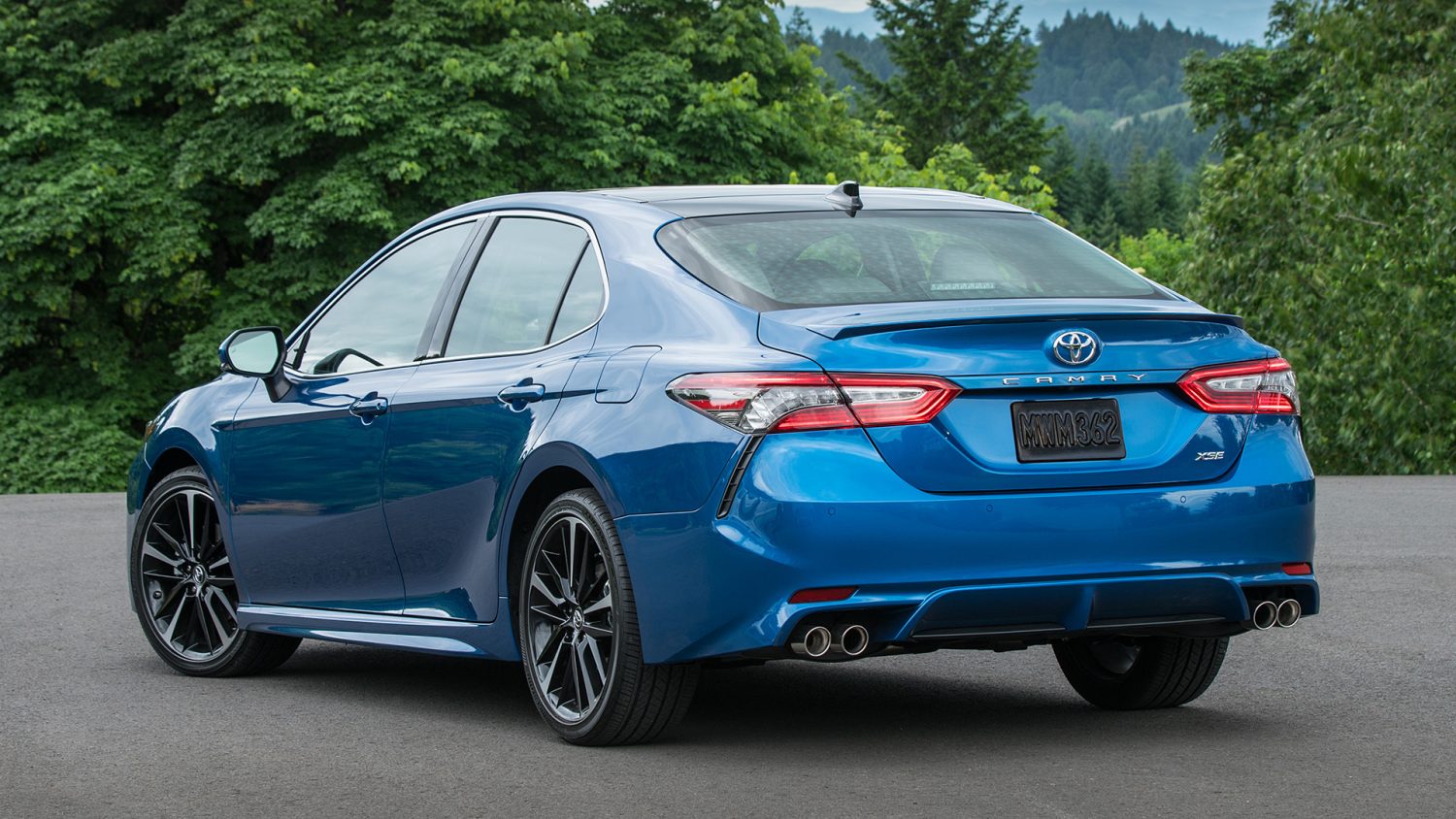The Toyota Camry Hybrid: A Reliable Choice, But With Some Years To Avoid
By admin / September 4, 2024 / No Comments / 2025
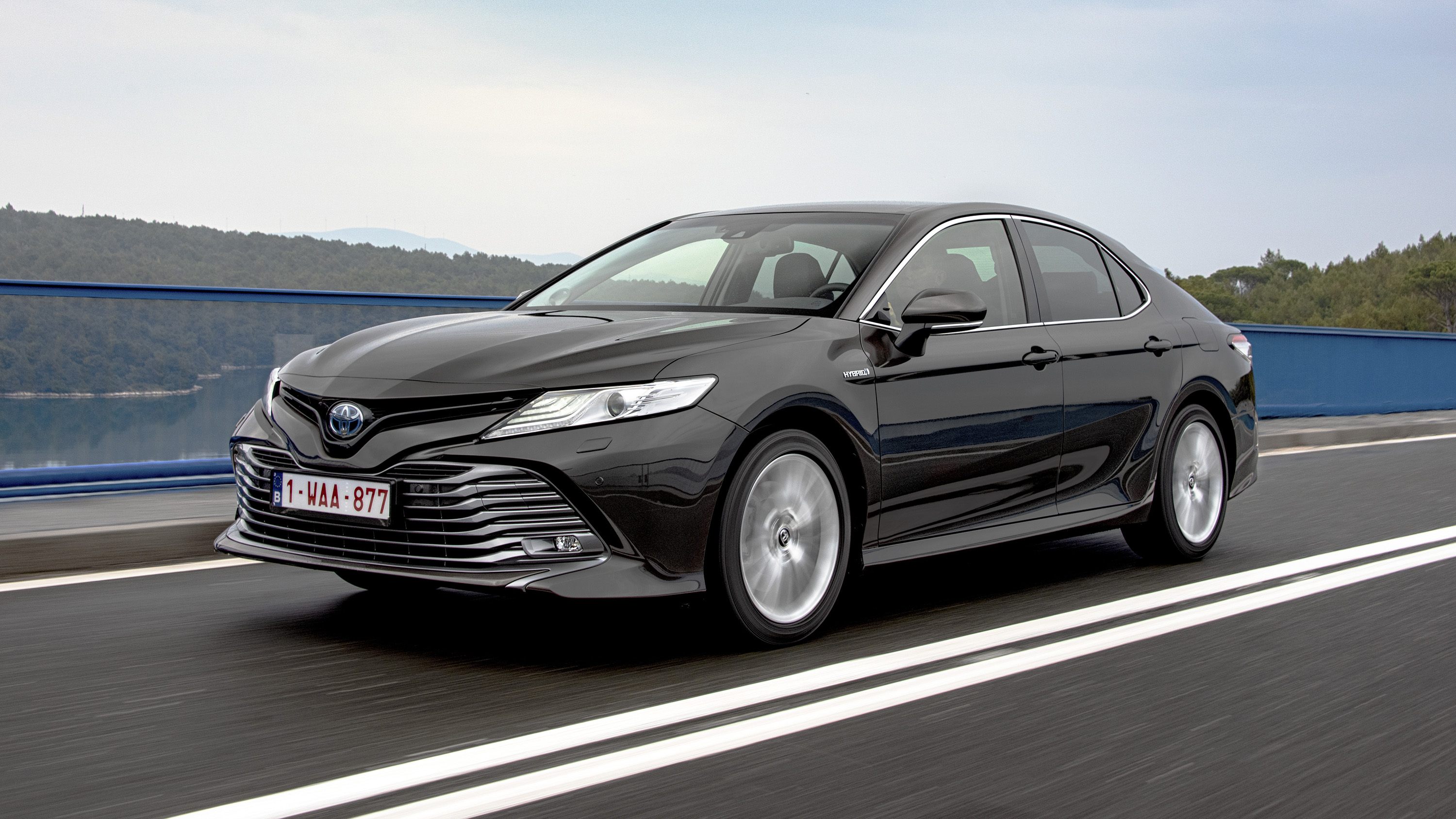
The Toyota Camry Hybrid: A Reliable Choice, But With Some Years to Avoid
The Toyota Camry Hybrid has consistently been a top choice for drivers seeking fuel efficiency and reliable performance. However, even the most reputable car models have their share of issues, and the Camry Hybrid is no exception. While most years boast excellent reliability, there are a few specific model years that owners have reported experiencing more problems than others. This article will delve into the Camry Hybrid’s history, exploring the years to avoid and the reasons behind their reputation.
A Brief History of the Toyota Camry Hybrid
The Toyota Camry Hybrid first debuted in 2007, marking a significant step forward in the hybrid vehicle market. This first generation (XV40) was based on the seventh-generation Camry and featured a 2.4-liter four-cylinder engine paired with an electric motor, producing a combined output of 187 horsepower. The model was lauded for its fuel efficiency and smooth performance, setting the stage for the Camry Hybrid’s future success.
Over the years, the Camry Hybrid has seen several generations, each introducing new features and advancements.
- Second Generation (XV50, 2012-2017): This generation saw a significant upgrade in both performance and fuel efficiency, thanks to a new 2.5-liter four-cylinder engine and a more powerful electric motor. The combined output increased to 200 horsepower, while fuel economy improved further.
- Third Generation (XV70, 2018-present): The current generation builds on the success of its predecessors, featuring a sleek new design, improved technology, and a more powerful hybrid system. The combined output now reaches 208 horsepower, while fuel economy remains impressive.
Years to Avoid: Understanding the Issues
While the Camry Hybrid is known for its reliability, certain model years have garnered a reputation for specific problems. These issues can range from minor annoyances to potentially costly repairs.
1. 2010 Toyota Camry Hybrid:
This model year, belonging to the first generation, is often cited as one to avoid due to its high frequency of battery issues. The hybrid battery, a crucial component in the car’s operation, is prone to premature failure in this particular year. Replacing the battery can be an expensive endeavor, costing several thousand dollars.
Common Battery Issues:
- Premature Degradation: The battery pack’s capacity can decrease significantly over time, leading to reduced fuel efficiency and a decrease in overall performance.
- Battery Cell Failure: Individual battery cells can fail, leading to a loss of power or complete battery failure.
- Cooling System Malfunction: The battery’s cooling system is vital for maintaining optimal operating temperatures. Malfunctions in this system can lead to battery overheating and premature failure.
2. 2013 Toyota Camry Hybrid:
The 2013 model year, belonging to the second generation, is another year that has been associated with battery issues. While not as severe as the 2010 model year, owners have reported battery degradation and failure at an earlier rate compared to other years.
3. 2016 Toyota Camry Hybrid:
This model year has been linked to issues with the hybrid system’s control module. The control module is responsible for managing the interaction between the gasoline engine and the electric motor. Malfunctions in this module can lead to a variety of problems, including:
- Engine Stalling: The engine may stall unexpectedly, leading to a loss of power.
- Hybrid System Malfunction: The hybrid system may not operate correctly, resulting in reduced fuel efficiency and performance.
- Check Engine Light: A check engine light may illuminate, indicating a problem with the hybrid system.
4. 2018 Toyota Camry Hybrid:
While the current generation Camry Hybrid has been praised for its reliability, the 2018 model year has seen some reports of issues with the infotainment system. Owners have reported glitches and slow performance with the touchscreen interface, as well as problems with the navigation system.
Common Infotainment Issues:
- Touchscreen Unresponsiveness: The touchscreen may become unresponsive or laggy, making it difficult to navigate menus and control settings.
- Navigation System Errors: The navigation system may provide inaccurate directions or fail to load maps correctly.
- Software Glitches: The infotainment system may experience software glitches, leading to unexpected behavior or crashes.
5. 2020 Toyota Camry Hybrid:
The 2020 model year has seen some reports of issues with the transmission. While not widespread, some owners have reported problems with the transmission slipping or exhibiting rough shifting behavior.
Common Transmission Issues:
- Transmission Slipping: The transmission may slip, resulting in a loss of power or a jerking sensation during acceleration.
- Rough Shifting: The transmission may shift roughly or hesitate between gears, leading to an uncomfortable driving experience.
- Transmission Fluid Leaks: Leaks in the transmission fluid can cause damage to the transmission and lead to premature failure.
Why These Years Are Problematic: Potential Causes
While the exact reasons for these issues vary, several factors can contribute to the problems experienced in these particular model years.
- Early Adoption of Technology: The first few years of a new generation often see manufacturers working out kinks in their technology. In the case of the Camry Hybrid, early models may have had issues with the hybrid system’s components or software.
- Production Defects: Manufacturing defects can also contribute to problems in specific model years. These defects may involve faulty parts, incorrect assembly, or other issues that can lead to premature failure.
- Design Flaws: In some cases, design flaws may be responsible for problems in certain model years. These flaws may not be apparent during the initial design and development process but become evident after the car has been in production for a while.
- Environmental Factors: Environmental factors, such as extreme temperatures or harsh road conditions, can also contribute to wear and tear on vehicle components, leading to problems in specific model years.
Preventing Problems: Maintenance and Inspection
While some problems are unavoidable, proper maintenance and regular inspections can help prevent many issues.
- Regular Oil Changes: Follow the manufacturer’s recommended oil change schedule to ensure optimal engine performance and reduce the risk of engine damage.
- Hybrid Battery Maintenance: Have the hybrid battery inspected and serviced regularly to ensure its optimal performance and longevity.
- Regular Inspections: Schedule regular inspections to identify any potential problems early on, before they become major issues.
- Use Quality Parts: When replacing parts, use genuine Toyota parts or high-quality aftermarket parts to ensure proper fit and performance.
Alternatives to the Camry Hybrid: Other Reliable Options
If you are concerned about the potential issues with certain Camry Hybrid model years, there are other reliable hybrid options available.
- Honda Accord Hybrid: The Honda Accord Hybrid has a reputation for excellent reliability and fuel efficiency. It offers a comfortable ride, ample cargo space, and a user-friendly infotainment system.
- Hyundai Sonata Hybrid: The Hyundai Sonata Hybrid provides a stylish design, a spacious interior, and impressive fuel economy. It also comes with a generous warranty and a range of advanced safety features.
- Kia Optima Hybrid: The Kia Optima Hybrid offers a similar combination of features and benefits as the Sonata Hybrid. It is known for its sleek design, comfortable ride, and impressive fuel efficiency.
Conclusion: Making an Informed Decision
While the Toyota Camry Hybrid is a reliable and efficient car, it’s important to be aware of the potential issues associated with certain model years. By researching thoroughly and considering the factors discussed in this article, you can make an informed decision about which Camry Hybrid model year is right for you. Remember to prioritize proper maintenance and regular inspections to minimize the risk of encountering problems.
By being proactive and staying informed, you can enjoy the benefits of a Toyota Camry Hybrid without facing unnecessary headaches.

